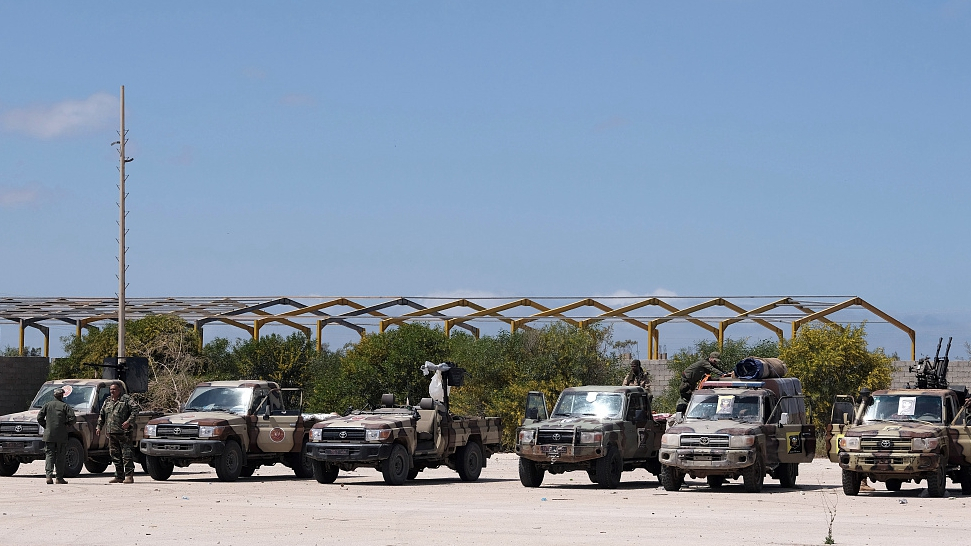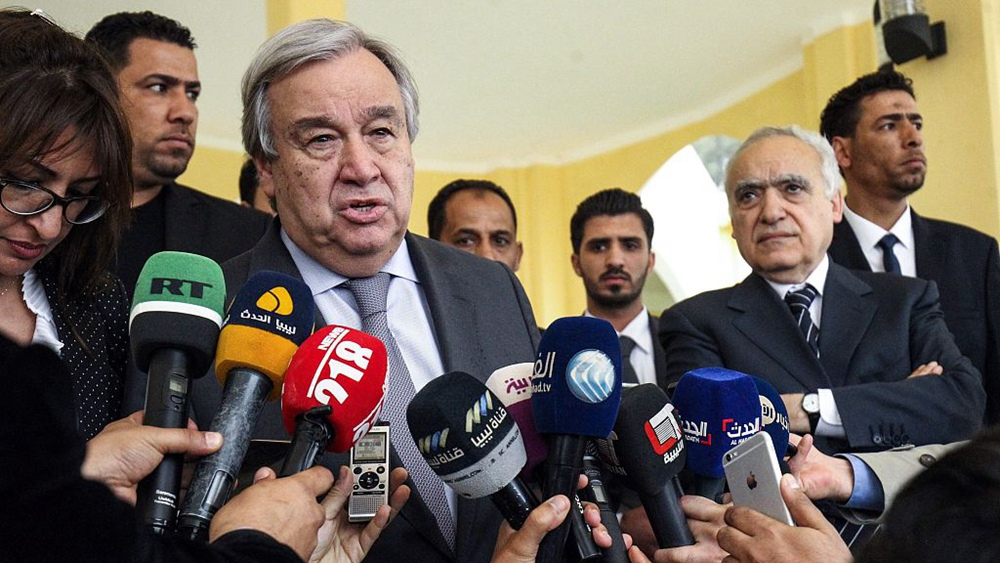
Opinion
20:01, 15-Apr-2019
Haftar's assault on Tripoli, a new beginning for Libya
Wang Jin

Editor's Note: Dr. Wang Jin is a research fellow of Charhar Institute in China. The article reflects the author's opinion, and not necessarily the views of CGTN.
On April 8, as the Libya's major strongman, retired general Khalifa Haftar, organized a major military offensive against the Libya's capital Tripoli with his Libyan National Army (LNA), the likelihood of new beginning emerged in the country that has been witnessing years of divisions, bloodshed and instability.
After the Muammar Gaddafi government was overthrown in 2011, Libya was filled with instability and chaos. Hundreds of military groups emerged while different local political and military "committees" were formed based on different ethnic, regional, tribal, family and ideological divisions.
Meanwhile, the rise of Islamic extremism is also an important problem for Libya, where the branches of Islamic State of Iraq and the Levant (ISIL) were established in major cities such as Misurata and Sirte. Many Libyan extremists went to join the ISIL ranks in Iraq and Syria, and Libya became an important stronghold for ISIL in northern Africa.

Libyan National Army members head out of Benghazi to reinforce the troops advancing to Tripoli, April 7, 2019. /VCG Photo
Libyan National Army members head out of Benghazi to reinforce the troops advancing to Tripoli, April 7, 2019. /VCG Photo
Against this backdrop, it is necessary for the international community to find a new solution to end the conflicts and confrontations inside Libya. On the one hand, UN tries to facilitate the peaceful negotiation inside Libya through political dialogue between different political groups, especially the internationally-recognized government in Tripoli headed by Prime Minister Fayez al-Sarraj and the Government of National Accord based in General Haftar's hometown Tobruk.
Although the two sides successfully reached a road map in Morocco in 2015 under the mediation of UN, the political impasse still prevented a final and comprehensive peaceful solution to end Libya's internal instability.
On the other hand, different international and regional states seek reliable partners inside Libya to end the internal conflicts. Qatar supports the Tripoli government through investments and fiscal transfers, due to the close ties between some Islamic political and military groups in western Libya.
However, Saudi Arabia, the UAE and Egypt, are more interested in supporting the Tobruk government in eastern Libya through providing both financial assistance and weaponry and equipment to the LNA led by General Haftar.

UN Secretary-General Antonio Guterres speaks to the press before departing from Benina International Airport in Libya's eastern city of Benghazi, April 5, 2019. /VCG Photo
UN Secretary-General Antonio Guterres speaks to the press before departing from Benina International Airport in Libya's eastern city of Benghazi, April 5, 2019. /VCG Photo
Saudi Arabia and UAE are keen on backing the LNA not only because of their own rift and friction with Qatar but also because of the belief that it is necessary to restore order and stability in Libya to prevent the expansion of Islamic extremism in the region.
For Egypt, it is highly necessary to find a reliable partner that upholds secular ideology and enjoys a strong capability to resist the expansion of Islamic extremism in the region.
In 2014, ISIL established two strongholds in North Africa, one in Libya while the other one in Egypt's Sinai Peninsula. To eliminate the presence of Islamic extremists in Sinai, Egypt should guarantee the clearance of extremism and terrorism in its western neighbor, Libya.
Although the UN and the West still recognize the government in Tripoli, Haftar's victory in conquering the capital city might benefit everyone. The instability of Libya allows for the emergence of Islamic extremism and terrorism, while the state's coastal area becomes a major platform for illegal immigration and human trafficking into Europe.
Given the fact that Haftar's LNA has controlled the eastern and southern Libya, with the victory of Haftar's military offensive in Tripoli of western Libya, the chaos and instability inside Libya might come to end, while the illegal immigration and Islamic extremism expansion will be largely restricted.
But the uncertainties still remain. The LNA under Haftar is still a loose military coalition and the general's control of his forces might not endure once their shared enemy in Tripoli disappears. Libyan tribes still play a vital role inside the state, and the rivalries and competitions between different tribes and families would influence the future of the state. How long could Haftar maintain his own side's unity remains to be seen.
(If you want to contribute and have specific expertise, please contact us at opinions@cgtn.com)

SITEMAP
Copyright © 2018 CGTN. Beijing ICP prepared NO.16065310-3
Copyright © 2018 CGTN. Beijing ICP prepared NO.16065310-3